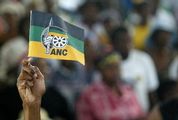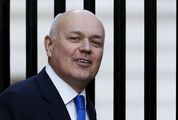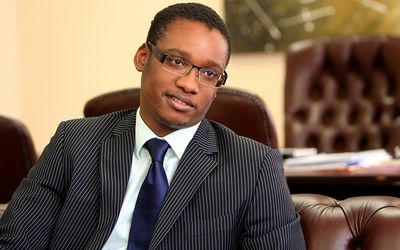SO, I had a new theory to share with you today about how the Gupta family might pay the R2.1bn to close their deal with Glencore to buy the Optimum Coal mine that supplies Eskom’s Hendrina power station in Mpumalanga.
Last week, I theorised that one way to do this would be to replace the R2bn or so in the mine’s rehabilitation fund with bank guarantees. It would be an almost unprecedented event in the mining industry, but perfectly possible provided the minerals resources minister and the South African Revenue Service agreed.
Since then, veterans in the mining industry have made other suggestions. One is that the Guptas could make the mine a totally Eskom-facing operation and sell its stake in the Richards Bay Coal Terminal (RBCT) to raise the required funds.
Then, Deputy Finance Minister Mcebisi Jonas dropped his bombshell on Wednesday, confirming reports that the Guptas had offered him the position of finance minister to replace his then boss, Nhlanhla Nene. He declined, and Nene was fired a few days later, at enormous cost to the economy.
Jonas’s disclosure makes the entire Optimum acquisition moot. It is hard to believe any bank, domestic or foreign, would finance it now. The Guptas must be under the most ferocious pressure to complete a deal to which they have committed themselves in law.
Even if they tried to sell their rights in the RBCT, buyers would squeeze them by holding back.
The pressure will also be on Duduzane Zuma, President Jacob Zuma’s son, who is now a major shareholder (along with the legal obligations he will have committed himself to) in Shiva, the Gupta mining vehicle into which its Tegeta company has been folded.
The moment positively bristles with threat. If the president chooses to fight the growing clamour for him to cut his ties with the Guptas (or even to resign), he risks dropping not only the Guptas, but Duduzane too, into a deep financial hole. If he caves in, the result is the same. He is trapped and it will take a miracle to rescue him.
The fact is that the Zuma family and the Gupta family have become financially entwined. Duduzane is not a lone outlier making his way in the world. He is also a middleman between his father and the Guptas. It is just way, way, too close.
You have to ask yourself how the participants in this joint effort could have thought it would not raise any eyebrows.
The Guptas are brash and loud, as the famous Waterkloof airbase wedding flight demonstrates. Instead of developing a quiet relationship with a head of state, they have paraded it as if it would somehow be appreciated by a grateful and admiring nation.
They are ubiquitous. In Eskom. In Transnet. They are desperate to do business with, if not control, South African Airways (SAA). They engineered a relationship with state arms maker Denel that saw big changes to the board.
The attempt to recruit Jonas is probably not a one-off. Already, former senior African National Congress (ANC) MP Vytjie Mentor has said she was offered former public enterprises minister Barbara Hogan’s job by the Guptas, provided she compelled SAA to drop the Indian route that they wanted to control.
Hogan herself has come close to disclosing details of instructions she was given as a minister by Zuma to make appointments she did not want to.
There will be more disclosures as people find their courage, or at least lose their fear of speaking out, and they will all point, inevitably, to the capture, if not of the state, then of the president.
Zuma told an audience in East London recently that he was grateful to the Guptas because they had given Duduzane a chance in life as he struggled to find work, and you can understand the gratitude.
But, it has come at a terrible price to Jacob Zuma, and for the life of me, I just cannot see how he will be able to complete his final term in office. He will certainly now have lost any ability to control both his succession as party leader and as president of the country.
Instead, the president is faced with an ANC national executive committee meeting this weekend that could have severe consequences for him personally.
Yes, the Guptas have denied Jonas’s claims, as they have Mentor’s. Our own humaneness demands that the denials are noted and that they should be somehow tested. The Guptas may have behaved poorly in assuming their political connections granted them special privileges and special access. But if they have broken any laws they need to be investigated.
A judicial commission has been suggested. But that would have to be constituted by the president himself, and he is conflicted in the matter.
The Democratic Alliance has suggested a parliamentary inquiry, which has some appeal, provided it could be adequately funded.
The Guptas themselves could trigger an inquiry of sorts by following up on their threat to sue journalist Alec Hogg for republishing articles on his website that are critical of them and that allege that they have indulged in "state capture". Such a case, should it come to court, would in turn, trigger a process of discovery that would require deep and expert auditing of their relationships with politicians and state-owned companies.
In the meantime, while we wait for the weekend’s ANC meeting, banks, lawyers, suppliers, business partners and clients of the Gupta business empire will be waiting too. They will want to know how legally and politically secure their relationships with the family are. The answers are not yet clear.
ON A related matter, I have been amazed at how one of the world’s great auditing firms, KPMG, has managed to become tangled up in a political standoff between SARS and the Treasury.
The South African KPMG unit appears to have produced a report for SARS that purports that an unlawful act — the creation of a "rogue unit" within SARS to investigate tax evasion — occurred, but for which they had not interviewed any of the people who apparently were guilty of this act.
What is more, their report contains large chunks of text delivered to them in correspondence by a firm of lawyers acting for SARS. And then they instructed their own clients that their report must not be used against those people.
What were they thinking?
The reputational damage this could do to a brand as big as KPMG is enormous, particularly if, as is possible, this investigation is one day tested in court and found to have no merit.





















Change: 1.19%
Change: 1.36%
Change: 2.19%
Change: 1.49%
Change: -0.77%
Data supplied by Profile Data
Change: -0.19%
Change: 0.69%
Change: 1.19%
Change: 0.00%
Change: 0.44%
Data supplied by Profile Data
Change: 0.62%
Change: 0.61%
Change: 0.23%
Change: 0.52%
Change: 0.12%
Data supplied by Profile Data
Change: -0.21%
Change: -1.22%
Change: -0.69%
Change: -0.51%
Change: 0.07%
Data supplied by Profile Data